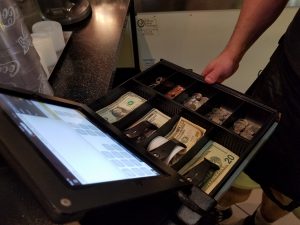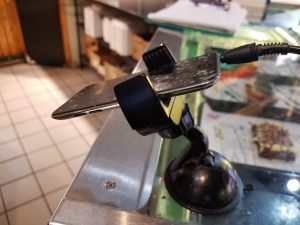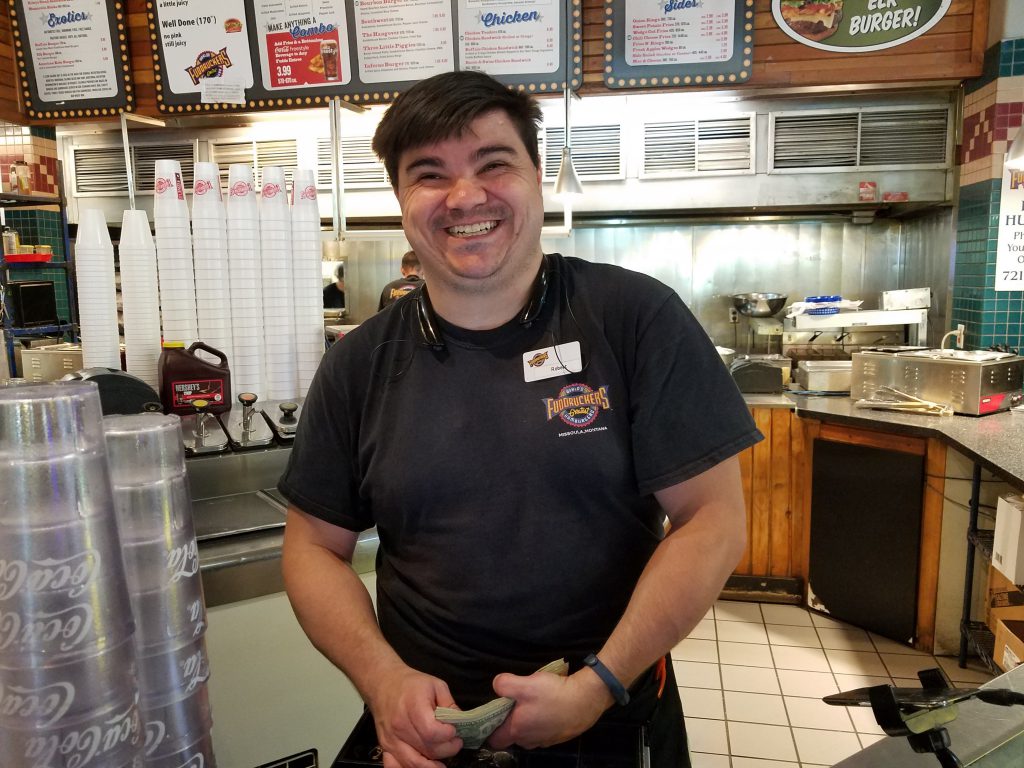Finding stable employment has not been easy for Robert Wilkins, 31. Diagnosed with Bardet–Biedl syndrome, along with two of his five siblings, Wilkins has low vision. His quest for work bounced him back and forth between Great Falls and Missoula before he landed his job at Missoula’s Fuddruckers as a cashier in 2014. “There were times when I thought I just wouldn’t ever get employment,” he remembers.
 Wilkins credits technology with helping him be successful in the workplace. On the job, he uses an iPad and the app, ShopKeep, to take orders. A shift manager creates buttons for most menu items, and Wilkins can use the iPad’s built-in VoiceOver to help him select the right button. (Voiceover works by speaking aloud the button or icon being touched. To select, a user taps twice versus the typical single tap. Find VoiceOver in Settings under Accessibility. Android users have TalkBack.) Wilkins wears an earbud in his left ear so he can hear VoiceOver in the noisy restaurant environment, and keeps an iPod on a suction-cup mount nearby so he can utilize a free app that tells him the denomination of paper bills.
Wilkins credits technology with helping him be successful in the workplace. On the job, he uses an iPad and the app, ShopKeep, to take orders. A shift manager creates buttons for most menu items, and Wilkins can use the iPad’s built-in VoiceOver to help him select the right button. (Voiceover works by speaking aloud the button or icon being touched. To select, a user taps twice versus the typical single tap. Find VoiceOver in Settings under Accessibility. Android users have TalkBack.) Wilkins wears an earbud in his left ear so he can hear VoiceOver in the noisy restaurant environment, and keeps an iPod on a suction-cup mount nearby so he can utilize a free app that tells him the denomination of paper bills.
 “I think it would be great if people with drive and the ambition to support themselves knew they can use this tech to get out there,” Wilkins said. “If businesses knew about the technology and how to integrate it into the workplace, it would give people who are blind, or losing their vision, more employment options.”
“I think it would be great if people with drive and the ambition to support themselves knew they can use this tech to get out there,” Wilkins said. “If businesses knew about the technology and how to integrate it into the workplace, it would give people who are blind, or losing their vision, more employment options.”
He notes it can be a real struggle for people with impaired vision to find, and keep, a good job. His own experience, moving between communities to find a comfortable fit, is one example, and he says the siblings who share his diagnosis have yet to find long-term work. Wilkins wants that for them. “Being able to work bolsters my confidence in what I can do, and makes me feel successful, for the time being, with what I’ve been given,” he explains. “It helps me to see a future.”

